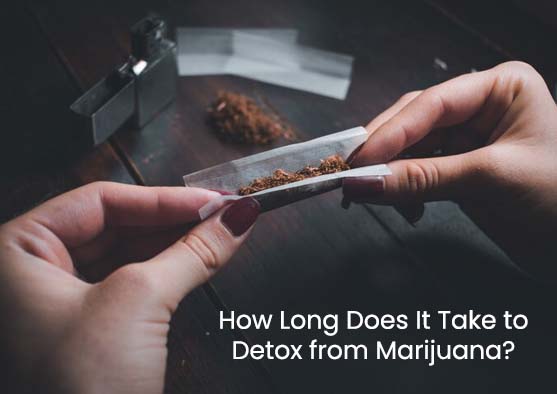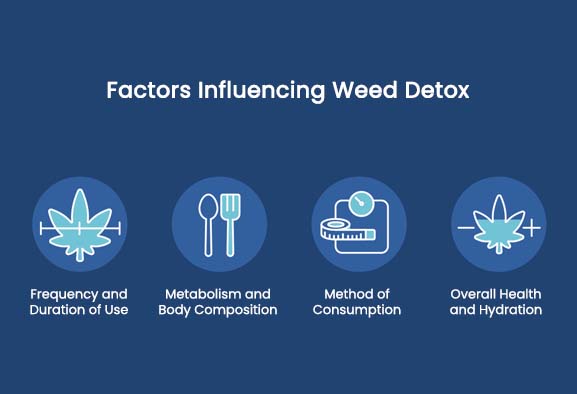The journey to recovery from addiction is often a challenging and transformative process. While completing a treatment program is a significant milestone, it is merely the beginning of a lifelong commitment to maintaining sobriety and overall well-being. Aftercare planning, therefore, becomes an essential component of this journey, serving as a roadmap for individuals transitioning from structured treatment environments back into their daily lives.
Understanding Aftercare
Aftercare is a critical phase of the recovery process that begins once an individual completes their primary treatment program, whether it be detoxification, inpatient rehabilitation, or an intensive outpatient program. It encompasses a range of services and support systems designed to help individuals maintain the progress they made during treatment and prevent relapse. The importance of aftercare cannot be overstated. While primary treatment addresses the immediate physical and psychological aspects of addiction, aftercare focuses on long-term recovery and the reintegration of individuals into their everyday lives. It provides a structured plan that includes continued therapy, support groups, and other resources to ensure sustained sobriety.
Types of Aftercare Programs
Aftercare programs are diverse and can be tailored to fit the unique needs of each individual. Some common types include:
- Outpatient Counseling: Regular sessions with a therapist or counselor to address ongoing issues and support mental health.
- Support Groups: Participation in groups such as Alcoholics Anonymous (AA) which offer peer support and accountability.
- Sober Living Homes: Transitional living environments that provide a structured and supportive community for individuals in recovery.
- 12-Step Programs: Structured programs that guide individuals through a series of steps designed to promote recovery and personal growth.
- Medication-Assisted Treatment (MAT): The use of medications, in combination with counseling and behavioral therapies, to treat substance use disorders.
Each of these programs offers different benefits and can be combined to create a comprehensive aftercare plan that addresses all aspects of an individual’s recovery.
Challenges in Aftercare
Despite its importance, aftercare is not without its challenges. Some common obstacles include:
- Relapse: The risk of relapse is a significant concern during aftercare. Triggers and cravings can resurface, making it crucial for individuals to have strategies in place to cope with these challenges.
- Lack of Support: Having a strong support system is vital, but not all individuals have access to family or friends who understand their journey and can provide the necessary encouragement.
- Access to Resources: Financial constraints, transportation issues, and limited availability of services can hinder an individual’s ability to participate fully in aftercare programs.
- Mental Health Issues: Co-occurring mental health disorders can complicate the recovery process, making it essential for aftercare plans to include mental health support.
Components of an Effective Aftercare Plan
A comprehensive aftercare plan is vital for sustaining the progress made during treatment and ensuring long-term recovery. An effective aftercare plan should be multifaceted, addressing various aspects of an individual’s life and tailored to their unique needs. Here are the key components that contribute to a successful aftercare strategy:
Personalized Treatment Plans
Personalization is the cornerstone of any effective aftercare plan. Recognizing that each individual’s journey through recovery is unique, All American Detox emphasizes the importance of creating tailored treatment plans. Personalized plans take into account the specific substance use history, co-occurring mental health conditions, personal triggers, and individual goals.
- Assessment and Evaluation: Initial assessments help in understanding the individual’s background, strengths, and areas that need support. Regular evaluations ensure the plan remains relevant and effective.
- Goal Setting: Establishing clear, achievable goals that align with the individual’s aspirations helps in maintaining motivation and tracking progress.
- Flexibility: Life circumstances change, and so should the aftercare plan. Flexibility allows for adjustments as needed, ensuring continuous support.
Support Systems
Support systems are crucial for providing the emotional and social reinforcement necessary for maintaining sobriety. These systems can include family, friends, support groups, and professional networks.
- Family and Friends: Involving loved ones can offer a solid foundation of encouragement and accountability. Family therapy sessions can also help resolve underlying issues and improve communication.
- Support Groups: Groups like Narcotics Anonymous (NA) provide a sense of community and shared experiences. These groups offer regular meetings, which can be a source of ongoing support and motivation.
- Sober Living Homes: These structured environments provide a transitional space between inpatient treatment and independent living, offering peer support and stability.
Continued Therapy and Counseling
Ongoing therapy and counseling are essential for addressing the root causes of substance use and promoting mental health.
- Individual Therapy: Regular sessions with a therapist help in identifying and managing triggers, developing coping strategies, and addressing any co-occurring mental health issues.
- Group Therapy: Participating in group therapy sessions can enhance interpersonal skills, provide peer support, and reduce feelings of isolation.
- Family Therapy: Engaging in family therapy can heal relationships, address dysfunctional dynamics, and create a supportive home environment.
By incorporating these critical elements—personalized treatment plans, robust support systems, and continued therapy and counseling—an aftercare plan can significantly enhance the chances of long-term success and well-being for individuals recovering from substance use disorders.

Tools and Resources for Success
Achieving lasting success after treatment requires a well-rounded approach that includes various tools and resources designed to support individuals in their recovery journey. By leveraging these resources, individuals can effectively navigate the challenges of post-treatment life, maintain their sobriety, and build a healthier, more fulfilling future. Here are some key tools and resources that contribute to successful aftercare:
Monitoring and Follow-Up
Continuous monitoring and regular follow-up play a crucial role in ensuring long-term recovery. This involves scheduled check-ins with healthcare providers, therapists, and support groups to track progress and address any emerging issues promptly. Regular follow-ups can help identify potential relapse triggers early and provide the necessary interventions to prevent setbacks. Additionally, accountability partners—such as sponsors or peer mentors—can offer consistent support and encouragement, reinforcing the commitment to sobriety.
Self-Care Strategies
Self-care is an essential aspect of maintaining mental and physical well-being during recovery. Developing a routine that includes healthy eating, regular exercise, and adequate sleep can significantly impact one’s overall health. Mindfulness practices, such as meditation and yoga, can help manage stress and enhance emotional stability. Engaging in hobbies and activities that bring joy and fulfillment can also provide a constructive outlet for emotions and reduce the risk of relapse. Encouraging individuals to prioritize self-care helps build resilience and fosters a positive outlook on life.
Community Resources
Community resources are invaluable in providing ongoing support and a sense of belonging. These resources can include local support groups, such as Alcoholics Anonymous (AA) or Narcotics Anonymous (NA), which offer a safe space for individuals to share their experiences and gain support from others who understand their journey. Community centers and organizations often provide educational workshops, recreational activities, and volunteer opportunities that promote social engagement and personal growth. Additionally, accessing resources like housing assistance, job training programs, and financial counseling can help individuals rebuild their lives and achieve greater stability.
By integrating these tools and resources into an aftercare plan, individuals can significantly enhance their chances of maintaining long-term recovery. Continuous monitoring, self-care strategies, and community support are all critical components that contribute to a successful and sustainable post-treatment life.
Aftercare Planning: Setting Up for Success After Treatment at All American Detox
The journey to recovery does not end with the completion of a treatment program; in fact, it is merely the beginning. Aftercare planning plays a crucial role in ensuring long-term success and stability for individuals recovering from addiction. By understanding the importance of aftercare, recognizing the various types of programs available, and acknowledging the challenges that may arise, we can better prepare for the road ahead.
Creating an effective aftercare plan that includes personalized treatment, robust support systems, and continued therapy and counseling is essential. Each component works in tandem to provide a solid foundation for recovery, addressing the unique needs of the individual and adapting as those needs evolve over time.
Moreover, leveraging tools and resources such as regular monitoring, self-care strategies, and community support can further enhance the efficacy of aftercare plans. These elements help individuals stay accountable, maintain their physical and mental well-being, and remain connected to a network of support.
Ultimately, the goal of aftercare is to empower individuals to lead fulfilling, substance-free lives. The commitment to an ongoing recovery journey, supported by a comprehensive aftercare plan, significantly improves the chances of sustained success. At All American Detox, we are dedicated to guiding our clients through every stage of their recovery, providing the necessary tools, resources, and support to help them achieve and maintain their sobriety. With a well-structured aftercare plan, individuals can confidently navigate the challenges of post-treatment life and build a brighter, healthier future
FAQS
- FAQ: Why is aftercare planning important after completing treatment? Answer: Aftercare planning is crucial for maintaining sobriety and preventing relapse after completing treatment. It involves creating a personalized plan to address ongoing recovery needs and support long-term success.
- FAQ: What does aftercare planning involve? Answer: Aftercare planning involves collaborating with treatment professionals to develop a plan that may include ongoing therapy, support group participation, relapse prevention strategies, and lifestyle adjustments to support sustained recovery.
- FAQ: How does aftercare planning contribute to long-term success after treatment? Answer: Aftercare planning helps individuals transition from the structured environment of treatment to everyday life while providing essential support and resources to navigate challenges and maintain sobriety.
- FAQ: What role does All American Detox play in aftercare planning? Answer: All American Detox provides comprehensive aftercare planning services, working closely with individuals to identify their unique needs and create a tailored plan to support their ongoing recovery journey.
- FAQ: Can aftercare planning address co-occurring mental health issues? Answer: Yes, aftercare planning can include resources and referrals to address co-occurring mental health conditions, ensuring that individuals receive holistic support for both addiction recovery and mental well-being.
- FAQ: How soon should aftercare planning begin? Answer: Aftercare planning ideally begins during the early stages of treatment to ensure a seamless transition from treatment to ongoing support. However, it can also be initiated at any point in the recovery journey.
- FAQ: What are the key components of a successful aftercare plan? Answer: A successful aftercare plan includes regular therapy or counseling, participation in support groups, healthy lifestyle choices, ongoing education about addiction, and a strong support network of family and peers.
- FAQ: Can aftercare planning help individuals reintegrate into their daily lives after treatment? Answer: Yes, aftercare planning is designed to help individuals reintegrate into their daily lives by providing coping mechanisms, relapse prevention strategies, and ongoing support to navigate challenges and triggers.
- FAQ: What are the benefits of personalized aftercare planning? Answer: Personalized aftercare planning ensures that individuals receive tailored support that addresses their specific needs, challenges, and goals, increasing the likelihood of sustained recovery and overall well-being.
- FAQ: How can individuals access aftercare planning services at All American Detox? Answer: Individuals can access aftercare planning services at All American Detox by reaching out to our dedicated team, who will guide them through the process and assist in creating a comprehensive aftercare plan for success after treatment.



